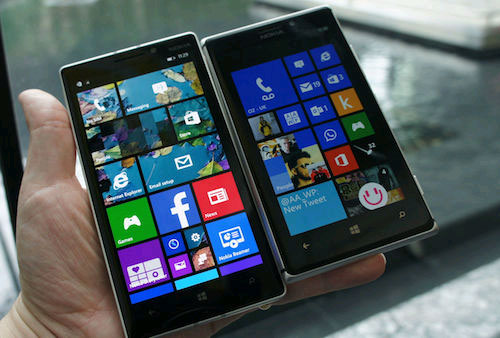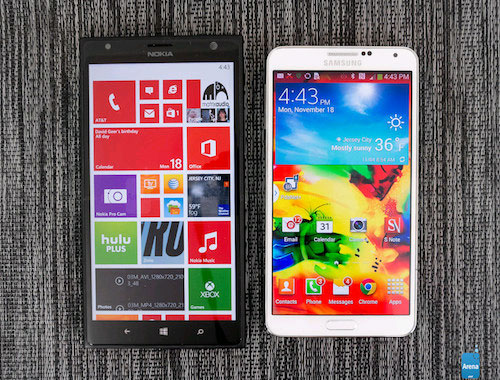Windows Phone market share declined because of cheap Android
Microsoft operating system will be difficult to develop market share when there is strong participation of Android One in the low-end segment.
Kantar Worldpanel 's report shows that the smartphone market in the middle of 2014 is gloomy with Microsoft having many difficulties. In the US, Windows Phone has dropped its market share from 4.7% in 5/2013 to 3.6% in the same period this year. In Germany, the decrease is from 6.2% to 5.9%; while in China decreased from 3% to 0.6%.

The cheap market for Windows Phone will be narrower with the participation of Android One.
In 2013, Windows Phone made significant strides towards the low-end segment in emerging markets. Nokia's brand and history for more than 20 years have helped Microsoft's operating system penetrate Brazil in which market share increased from 4.2% at 5/2012 to 5.5% a year later. Extensive distribution network with tens of thousands of Nokia selling points is an important bridge connecting Microsoft and users.
With many attempts, Windows Phone accounts for 3% to 5% of the global smartphone market. However, Microsoft will be very difficult to create a breakthrough in the near future because Google is about to create a " flood " of Android phones priced under 100 USD. Most of Windows Phone's growth comes from emerging markets, where people need cheap devices. When Google jumps into this segment, Microsoft's ' pie ' will shrink significantly because Windows Phone is hard to keep up with the popularity of Android phones.

Nokia slowed down in the phablet segment.
In the US and Germany, two important smartphone markets in the West, cheap Android phones promise to beat Windows Phone. Microsoft has been too slow to meet users' needs and not exploit its weaknesses. While customers want a big screen phone, Apple doesn't do it so Samsung jumps in with the phablet line and is very successful. At the time of 2012, the Galaxy Note created a global fever thanks to a screen of more than 5 inches. Unfortunately, Microsoft was too slow and pointed out the first phablet at the end of 2013.
The development of Windows Phone is expected to be more difficult in the coming time when Apple launches a big screen iPhone. This is also the time of booming devices running Android One with 4.5-inch screen, 2 SIM support, microSD card slot, FM radio capture and are priced under 100 USD. The BGR page made comments, the market share declined and the fierce competition was ' death knell for the entire Windows Phone project '.